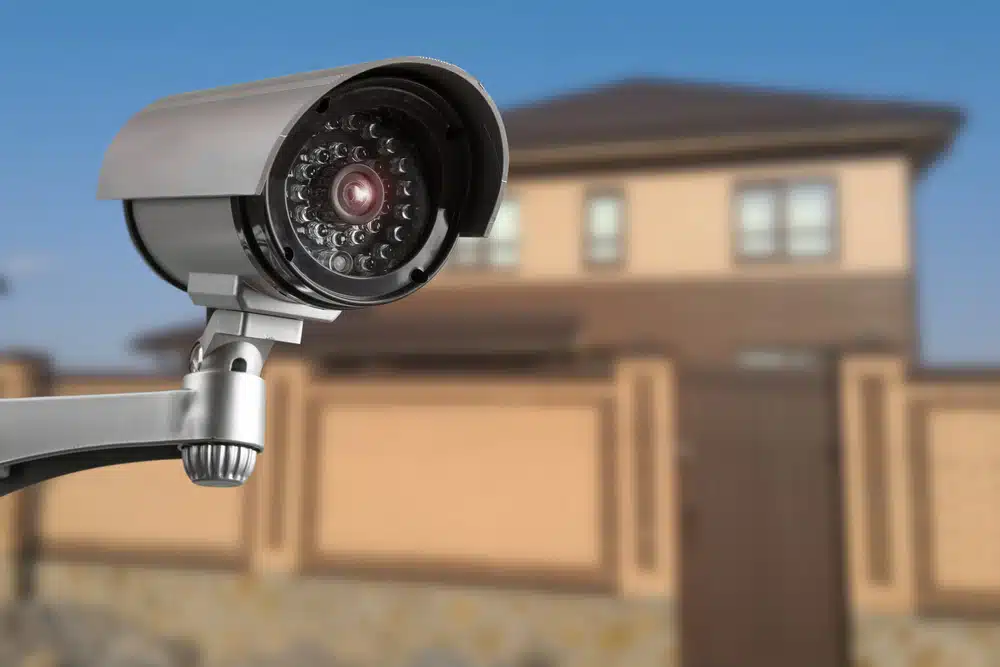Owning a short-term rental comes with its fair share of risks, and ensuring the protection of your property and its guests is of utmost importance. One essential aspect of safeguarding your investment is obtaining short-term rental insurance (aka vacation rental insurance).
In this comprehensive guide, we will cover the various types of short-term rental property damage insurance and other types of coverage, as well as actionable advice on how to set yourself up with the right coverage for your rentals. Doing so will allow you to sleep well at night, knowing your property and your business are protected.

What is Short-Term Rental Insurance?
Short-term rental insurance is a specialized insurance or coverage policy designed to protect property owners from potential risks associated with renting out their homes. It typically provides coverage for property damage, and liability claims, among other potential risks. Property damage protection covers hosts from financial loss due to damage caused by guests, such as accidental breakages, spills or stains, and covers repairs or replacements, ensuring that your property remains in top condition.
Why Do I Need Short-Term Rental Property Damage Insurance?
Your short-term rental is a source of income and as such, property damage insurance is an essential aspect of protecting your investment. While it’s rare that guests will intentionally damage your property, accidents do happen and it’s up to you to be prepared for these unforeseen circumstances.
Common Risks for Airbnb Hosts
Here are some of the most common issues hosts face when renting out a vacation property:
- Damage to property
- Vandalism (intentional damage)
- Theft
- Damage to your guests’ property
- Unpaid property rental
- Bodily injury (to a guest while staying at your property)
Without proper coverage, any of these issues could put you out a significant sum of money and cause financial loss. Repairing or replacing damaged items in your vacation rental can be expensive, potentially impacting your profitability as a host. Property damage insurance transfers the financial risk to the insurance provider, ensuring that you are not burdened with significant out-of-pocket expenses.
Besides the obvious financial benefits, there are additional reasons to protect your property with insurance including:
- Safeguarding Your Property Value
Your vacation rental property is a significant investment, and maintaining its value is crucial. Property damage insurance helps preserve the value of your property by covering the costs of repairs or replacements due to guest-inflicted damage. By promptly addressing damages, you can maintain a high-quality rental experience for future guests and protect your property’s long-term value.
- Minimizing Disputes with Guests
Unfortunately, disagreements between hosts and guests regarding property damage are all too common (and this can often lead to poor reviews which will have an impact on future bookings). Having property damage insurance in place helps minimize disputes by providing a clear process for addressing damages and ensuring fair resolution. Some solutions, such as Guesty’s Damage protection allow you to claim and recover your losses without involving guests at all – eliminating all friction that could come from potential disagreements.
- Peace of Mind for Unforeseen Events
No matter how diligent you are as a host, unforeseen events can occur. Accidents or unexpected incidents beyond your control can cause substantial damage to your vacation rental. Property damage insurance provides peace of mind, knowing that you are prepared for such events and can recover financially without significant setbacks.
- Meeting Platform Requirements
Many vacation rental platforms, including Airbnb, have specific insurance requirements for hosts. Property damage insurance is often a mandatory requirement to list your property and ensure compliance with platform policies. By having the necessary insurance coverage, you can confidently list your vacation rental and attract potential guests.

Types of Coverage to Consider as a Host
There are a number of different types of coverage for protecting your short-term rental property. Start with understanding the coverage you already have and then you can see what other options are available and potentially worth investing in.
Airbnb, VRBO and Booking.com Damage Coverage Policies
Each of the major online travel agencies (OTAs) such as Airbnb, VRBO, and Booking.com, has its own policies and processes to deal with guest damages and injury. Here is a breakdown of what you get with each platform:
Airbnb’s AirCover for Hosts
Airbnb’s AirCover For Hosts comes automatically with every listing and includes:
- Guest identity verification
- Reservation screening
- $3M host damage protection
- $1M host liability insurance and
- A 24-hour safety line
Airbnb Host Damage Protection
Airbnb’s host damage protection is not exactly insurance for Airbnb hosts but it covers you for damage to your property by guests during a stay. It covers:
- Damage to your home, furnishings, valuables, or belongings caused by guests (or their invitees)
- Damage to parked cars, boats, or other vehicles caused by guests (or their invitees)
- Unexpected or extra cleaning costs needed due to the behavior of a guest (or their invitees) during an Airbnb stay—for example, professional carpet cleaning
- Income lost if you need to cancel confirmed Airbnb bookings due to damage caused by a guest (or their invitees)
It doesn’t cover:
- Damage from normal wear and tear
- Loss of currency
- Loss due to acts of nature (like earthquakes and hurricanes)
- Other exclusions apply
How it works:
To file a reimbursement claim through AirCover the host needs to submit evidence (such as photos, repair estimates, or receipts) to the resolution center within 14 days of the guest’s checkout requesting payment from the guest. Once the request has been submitted, the guest will have 24 hours to pay. If they decline or don’t respond you have 30 days from the time of the damage or loss to involve Airbnb Support to resolve the dispute.

Airbnb’s Host Liability Insurance
Airbnb host liability insurance provides one million dollars in coverage if you are found legally responsible for a guest’s injury or their property being damaged or stolen during a stay.
According to their website, host liability insurance covers you if you’re found legally responsible for:
- Bodily injury to a guest (or others)
- Damage to or theft of property belonging to a guest (or others)
- Damage caused by a guest (or others) to common areas, like building lobbies and nearby properties
Host liability insurance doesn’t cover damage or injury resulting from something done intentionally.
How it works:
To file a claim you need to fill in a liability insurance intake form which will be sent to a third-party insurer, who will resolve your claim according to the terms of the insurance policy.

VRBO Property Damage Protection
VRBO offers two options for hosts to recover payment from guests for damages.
Property damage protection
VRBO’s property damage protection (PDP) is an optional insurance plan that travelers can purchase to avoid having to pay out of pocket for any damages to your property. You can require or suggest that your guests purchase this plan before their stay.
Damage deposits
You can also require guests to pay a damage deposit either upfront at the time of booking or at the time of the last payment that you will keep in the event that they cause damage to your property. VRBO will charge the traveler’s credit card if you file a claim within 14 days after the guest checks out.
Learn more about how you can protect your property from guest damages through VRBO.
Booking.com Damage Programme
Booking.com offers two options for recovering compensation for guest damage – their damage programme or a damage deposit.
Damage Programme
Hosts can opt into Booking.com’s damage programme which will facilitate the damage payment process at no additional cost. The guest only pays if damage is caused during their stay and the host reports it.
How it works:
- The host sets up a damage programme including the maximum amount that can be charged per booking.
- In the event that damages occur, the host submits a damage payment request, including proof, within 14 days after guest check out.
- You can request payment for up to the maximum amount you selected when you set up the damage programme.
- Booking.com will contact the guest, informing them that damage occurred during their stay and requesting payment.
- If your request is accepted, Booking.com will pay it out to you via bank transfer within 30 days.
Damage Deposit
Booking.com also offers hosts the option to apply a damage deposit requirement to a listing to be paid in advance or upon arrival. It’s important to note that Booking.com doesn’t collect the damage deposit from guests on the host’s behalf, it needs to be arranged directly between the host and their guests.
According to their site, this is how to set up your damage deposit:
- Log in to the Extranet and select the Property tab.
- Click Policies, scroll down to Other Policies, then Damage deposit, and click Edit.
- A pop-up window will appear where you can make adjustments.
- Click Save at the bottom of the page when you’re done.
As you can see each of the OTAs provides some level of coverage, but if you are seeking more comprehensive coverage or the possibility to receive compensation without the guest’s involvement keep reading for additional options.

Guesty’s Damage Protection
Guesty users have an additional option for coverage made specifically for short-term rental hosts and property managers. Guesty’s Damage Protection offers full coverage for guest damages across all distribution channels (Airbnb, VRBO, Booking.com etc.). What’s even better is that the simple process of making a claim happens right within the Guesty platform and without any involvement of the guests, so you completely avoid claim disputes that can lead to unhappy guests and bad reviews.
How it works:
Within the damage protection feature tab in the Guesty platform choose the desired coverage plans depending on the value of your property and its contents. Plans range from $3,000 up to $20,000 per booking. There is no deductible and the plans include additional coverage for damages like professional bed bug removal, smoking-related incidents, and real property (building/structural) damage.
If damage occurs, filing a claim is quick and easy involving a few simple steps right within the Guesty platform. You can track the claims process right within the dashboard. 85% of claims are paid within four days.

Short-Term Rental Host Insurance Policies
Most standard homeowners insurance policies cover owner or tenant-occupied properties but not necessarily vacation or short-term rentals that are run as a for-profit business. Your first step is to learn exactly what your current insurance policy covers and then understand what the gaps are. To find the best insurance for Airbnb hosts, speak to your insurance agent or insurance broker for full details about what your current policy covers, what add-ons are available through your existing insurance company or what other policies might be available. Here are some types of coverage you may want to consider:
Host Damage Protection
This is a specific policy that includes coverage in the event that a guest damages your property during their stay. This may be used in instances where the guest disputes your request or if you make a claim without the guest’s involvement.
Liability Insurance
Liability insurance is crucial for protecting yourself against potential lawsuits or claims resulting from injuries or accidents that occur on your vacation rental property. It covers legal expenses, medical costs, and damages if you are found responsible for a guest’s injury or property damage. Liability coverage provides peace of mind and financial protection against unforeseen circumstances that affect your guests during their stay.
As mentioned above, some of the OTAs including Airbnb include some amount of Host Liability Coverage built into a reservation, but it’s important to know the exemptions and limitations to the coverage.
Loss of Rental Income Insurance
Loss of rental income insurance provides coverage for the income you would have earned if your vacation rental becomes uninhabitable due to covered damages. This type of coverage helps compensate for the financial loss during the repair or replacement period, ensuring that you can continue to meet your financial obligations even when your property is temporarily unavailable.
Extraordinary Events Coverage
Extraordinary events coverage protects against losses resulting from events typically excluded in standard insurance policies. This may include coverage for natural disasters like earthquakes, floods, or hurricanes. Depending on the geographical location of your vacation rental, it’s essential to evaluate the risk of such events and consider additional coverage if necessary.
Umbrella Insurance
Umbrella insurance provides an extra layer of liability protection beyond the limits of your primary liability coverage. It offers higher coverage limits and can protect you in situations where a significant liability claim exceeds your underlying policy’s limits. Umbrella insurance is valuable for hosts who want additional peace of mind and protection against substantial claims.
Additional Coverage Options
Beyond these common types of property coverage, you may want to also inquire about business interruption insurance (to cover lost income or expenses incurred from utility failures or other unexpected events), workers’ compensation insurance (if you manage employees), or personal property insurance (to insure your personal items that may be kept on-site).
When investigating your options, keep in mind that the cost of your short-term rental insurance depends on a number of factors, including:
- Location
- Type of residence
- Property value
- Value of contents
- Amount of deductible
- Amount of coverage desired

Ways to Avoid Damages to Your Short-Term Rental
So far, we’ve covered a lot of information about insurance and damage protection, that enable you to sleep well at night knowing you are protected. Now we are going to dive into some strategies that will help you to reduce the chances of damages happening in the first place.
House Rules and Rental Agreements
You can avoid a majority of incidents by being clear about your house rules to every guest before finalizing a booking. Include your rules regarding maximum occupancy, smoking, pets, children and age of primary renters.
Requiring that your guests sign a legal rental agreement prior to check-in ensures that they have read and understood your rules and are responsible for upholding them and treating your property as you expect. It also helps eliminate disputes in the event that you do need to make a claim.
Guest Screening
Screening guests is a way to get some basic background information and some peace of mind before you accept a reservation. There are a few ways to cover your bases to ensure your guests are who they say they are and to check their reputation as guests who behave, pay, and don’t have a criminal record.
Self-screening
The most basic way for a host to screen their guests is to communicate with them directly. Message guests to find out more about them and the details and reason for their stay. You may wish to verify your guests’ identities by requiring ID, checking their guest profile, and if you really have time checking them out on social media. This process is of course time-consuming and has the potential to scare your guests away.
OTA Screening
Some of the OTAs provide a limited guest verification or screening process which may require a valid ID or a background check to complete a booking or perform. You should do research on every channel that you put your listing to understand their policies. Here are a few policies that exist on the major OTAs.
Airbnb
Hosts on Airbnb can require their guests to complete Airbnb’s Verified ID process which includes a name, address, a government-issued ID or other personal identifying information before finalizing a booking. In some countries, they have now also instituted a screening technology to reduce the chances of disruptive stays or parties. Lastly, Airbnb’s background check policy can flag guests with a criminal history.
VRBO
Hosts can choose to only allow bookings of guests who have verified their identity through VRBO’s guest identification, however, this may limit bookings since guests are not required to do so when using the channel to make a reservation.
Booking.com
Hosts can use Booking.com’s guest requirements section to create rules to have control over who can book a reservation.
Software for Screening Guests
There are several third-party softwares available that will perform guest screening for short-term rentals. Using an extensive database they will verify your guest information and flag any suspicious behavior.

Airbnb Monitoring Technology
There is a growing amount of technology available for hosts to monitor activity and prevent risky behaviors on their property. These include smart locks and keyless entry devices, security cameras and lighting, and noise and occupancy monitoring devices. It is worth investing in these devices to empower you to keep an eye on who is entering your property and to some extent inform you of behaviors that may indicate a party or unruly behavior. While they can’t prevent all damages, they may be able to prevent the type of damage that can cause real loss before it happens.
Many of these technologies can be integrated into a property management system like Guesty, enabling this to be integrated right within all of your property management needs such as you channel manager and payment processing and centralized in one place. You can have a look at Guesty’s robust marketplace to see how you can further reduce risk without adding a lot of extra work by integrating multiple technologies into one convenient location.
In conclusion, short-term rental insurance is a vital component of protecting your vacation rental property. It offers financial security, mitigates risks, and provides peace of mind for both anticipated and unexpected damages. By investing in these protections, you can safeguard your property’s value, minimize financial liabilities, and maintain a positive rental experience for guests while focusing on the success of your vacation rental business.



